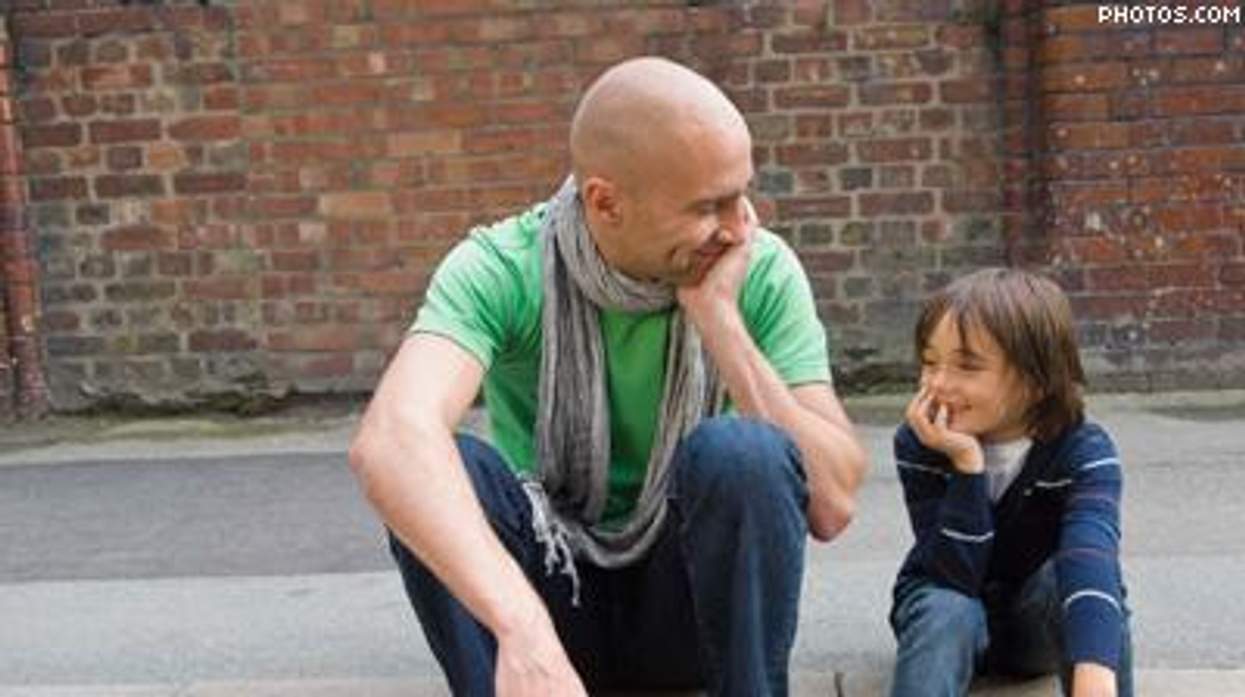LGBT rights advocates are up in arms over a proposed amendment by New York City's Department of Housing Preservation and Development to change who can inherit affordable housing units.
In early October, the department proposed narrowing succession rights under the Mitchell-Lama program, a nearly 60-year-old set of rules that govern affordable rental and cooperative housing for lower income families. Housing Preservation and Development would like to remove the broad term "family member" in favor of the precise "spouse" to define who is eligible to receive property rights.
Activists say the change would mean fewer opportunities for lower-income LGBT families to maintain their current housing arrangements and that, in the worst cases, some would be kicked out onto the street. They also say the change negates legal precedent.
"Many believe that HPD has tried to rush this and other changes through in the twilight of the present administration because they would probably nor get a welcome hearing from the de Blasio administration," says Paris Baldacci, director of Cardozo School of Law's Housing Rights Clinic and of its LGBT Litigation and Leadership Practicum. He estimates the number of LGBT-occupied units at 2,300 to 4,600 -- out of a total of 44,600 -- but he notes that 34 percent of previous cases on succession rights involved LGBT families.
"Given this radical departure from settled law and practice in the area of tenancy succession, which removes HPD's succession provisions from the uniformity that marks such provisions in regulated and subsidized housing throughout the State, the failure to draw the public's attention to this matter is unconscionable," he wrote in written testimony to HPD.
Baldacci said it seems Housing Preservation and Development thinks marriage equality in New York has rendered previous protections for LGBT families superfluous. He and other activists have cited the case of Braschi v. Stahl, in which the New York State Court of Appeals nearly 25 years ago held that the term "family" should not be rigidly interpreted.
For its part, Housing Preservation and Development says the right to an affordable housing unit was never meant to be like a deed or property title, which can easily be transferred to individuals upon one's death.
"We are attempting to open up Mitchell-Lama units to more hardworking New Yorkers who are in desperate need of affordable housing, without disrupting life or adding anxiety to those who currently reside in Mitchell-Lama developments," says department spokesman Eric Bederman. "[A recent] hearing was an opportunity to get feedback from Mitchell-Lama residents and those familiar with the program, and we will carefully consider all of the comments prior to finalizing the rule changes."
The process is still in the public comment period, which is open until November 30 for people to submit written testimony.
There are 97 city-sponsored moderate- and middle-income rental and limited-equity cooperative developments in New York City, with more than 44,600 units. Housing Preservation and Development supervises waiting lists and management issues, and has other oversight responsibilities for 78 Mitchell-Lama developments; an additional 19 developments have shared supervision by HPD and the federal Department of Housing and Urban Development.
Any couple in New York City can now get married and guarantee rights of succession for housing.
Advocates for changes to Mitchell-Lama contend the system has broken down in recent years. There have been instances where the tenant of record moves out after a short period of time to create succession rights for someone else, essentially allowing that person to jump the line without being on a waiting list. Such a situation hurts other eligible people who have been on waiting lists for years.
But activists in the LGBT community are not convinced. Representatives ftom the Legal Aid Society, the New York Legal Assistance Group, and Columbia University all submitted testimony to HPD opposing the proposed amendment.
"We are well beyond the day when a public entity can limit access to a program such as the Mitchell-Lama program with such a narrowly defined conception of family," Katherine Franke, director of the Center for Gender and Sexuality Law at Columbia Law School, said in written testimony during a public hearing November 6. "The proposed amendment's limitation in the ability to gain or retain access to Mitchell-Lama housing rights marks a step backward in the well-accepted recognition of a broad diversity of families in New York City."
Baldacci echoes Franke's statement.
"HPD may moan and groan, but it presents no evidence linking its alleged waiting list problems with the succession regulations that have protected many families from eviction and possible homelessness," he says.
The election of left-leaning Bill de Blasio could mean a reversal by HPD on the proposed change, which was put forth under Mayor Michael Bloomberg. It is unclear, though, how quickly the amendment could proceed since de Blasio does not take office until January.
Regardless, any change to the Mitchell-Lama program could be contested in court, and if that happens, it would not go into effect immediately.
Contact reporter Alex Davidson on Twitter at twitter.com/adwildcat




































































Charlie Kirk DID say stoning gay people was the 'perfect law' — and these other heinous quotes